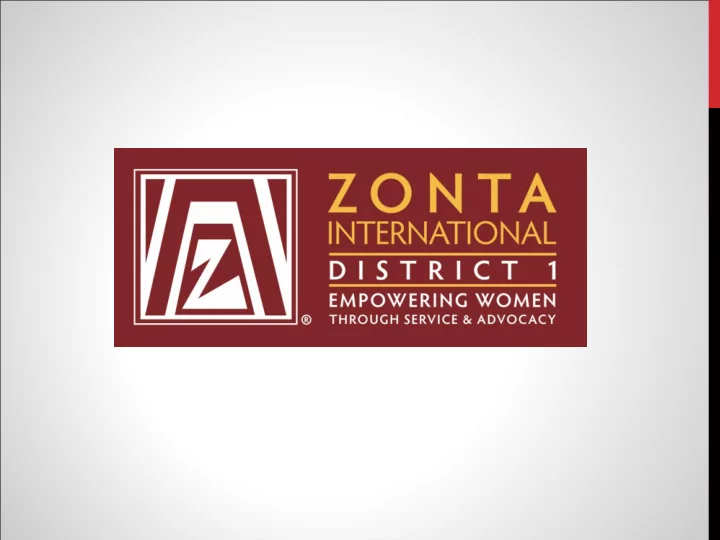

CONFLICT RESOLUTION Roles People Play in Groups President’s Training Concord, NH August 27 th , 2016 Millie Blum
WHEN THINGS GO WRONG Objective (s): To identify strategies to deal with negative team members and conflict resolution One of the biggest problems for leaders is to deal with “team” members who are excessively negative. Negativity can corrupt the climate and of course productivity of a meeting and the overall health of a club. Another problem for leaders is when disputes arise within the club.
ROLES PEOPLE PLAY IN GROUPS Negativity Types: 1. The Resisters – They rail against anything different 2. The Wobblers – They are constantly shifting moods and expect others to adjust to them 3. The Gossipers – They spread rumors and tell inappropriate personal tidbits 4. The Blamers – They are constantly blaming others 5. The Victims – They believe people are out to get them
ROLES PEOPLE PLAY IN GROUPS Negativity Types: 6. The Adhesives – They can’t let go, even things that happened years ago 7. The Pessimists – They always expect the worst case scenario 8. The Boilers – They will blow over at the slightest provocation 9. The Complainers – They feel everything is wrong or will soon go wrong. 10. The Choosers – They constantly pitting one group (or side) against the other
ROLES PEOPLE PLAY IN GROUPS Negativity Types: 11. The Detached – They feel most everything is dumb or beneath them 12. The Self Absorbed – They are constantly grabbing credit or attention
DEALING WITH CONFLICT WITHIN THE CLUB APPROACHES TO CONFLICT Avoidance Accommodate – engage but give in Compete Compromise Collaborate 9/7/2016 7
TURNING A CONFLICT STYLE INTO A STRATEGY In disputes, if Then *Neither the outcome nor the relationship is important to you Avoid *The relationship is more important that the outcome A ccommodate *Both the relationship & outcome are important to you Collaborate *The outcome outweighs the relationship Compete *The outcome and the relationship are both somewhat important (or external forces impinge) Compromise
LEADERSHIP ROLE IN RESOLVING DISPUTES Active Listening Get the Story Listen for Emotions/reflect feelings Summarize/Reframe (remove inflammatory or derogative statements Value Silence Probe / Clarify Meanings/ paraphrase
SUMMARIZE Check accuracy – “You’ve said a lot. Let me see if I understand…” – “So the issues you’re concerned about are X, Y, Z, and it sounds like the biggest one for you is Z. Is that right?
LISTENING IS IMPORTANT AND POWERFUL Good listening is helpful in and of itself Builds trust and rapport Deescalates/calms Creates clarity Feels like a “gift” --everyone wants to be heard
ACTIVE LISTENING IS: Ability to focus/concentrate -- focused on all aspects of speaker’s communication, setting aside own issues for the moment. Attitudes (ideally): • I care what this person has to say • I’m sincerely curious about how this person sees things • I’m willing to withhold judgment and accept this person’s reactions, perceptions, feelings as legitimate
TIPS FOR DEALING WITH NEGATIVITY AND CONFLICTS Successful conflict resolution depends on your ability to: Manage stress while remaining alert and calm
TIPS FOR SUCCESSFUL CONFLICT RESOLUTION Successful conflict resolution depends on your ability to: Recognize and manage your emotions Control your emotions and behavior
TIPS FOR SUCCESSFUL CONFLICT RESOLUTION Successful conflict resolution depends on your ability to utilize your verbal and nonverbal communication skills
TIPS FOR SUCCESSFUL CONFLICT RESOLUTION Successful conflict resolution depends on your ability to: Be aware of and respectful of differences
TIPS FOR SUCCESSFUL CONFLICT RESOLUTION Successful conflict resolution depends on your ability to: Use humor and play to deal with challenges
Q&A
Recommend
More recommend